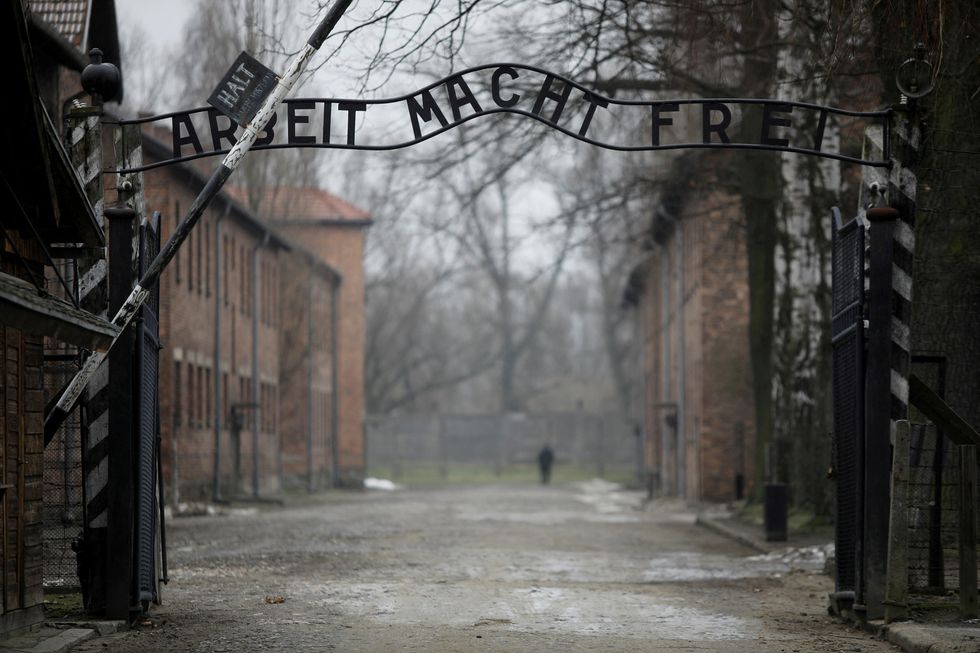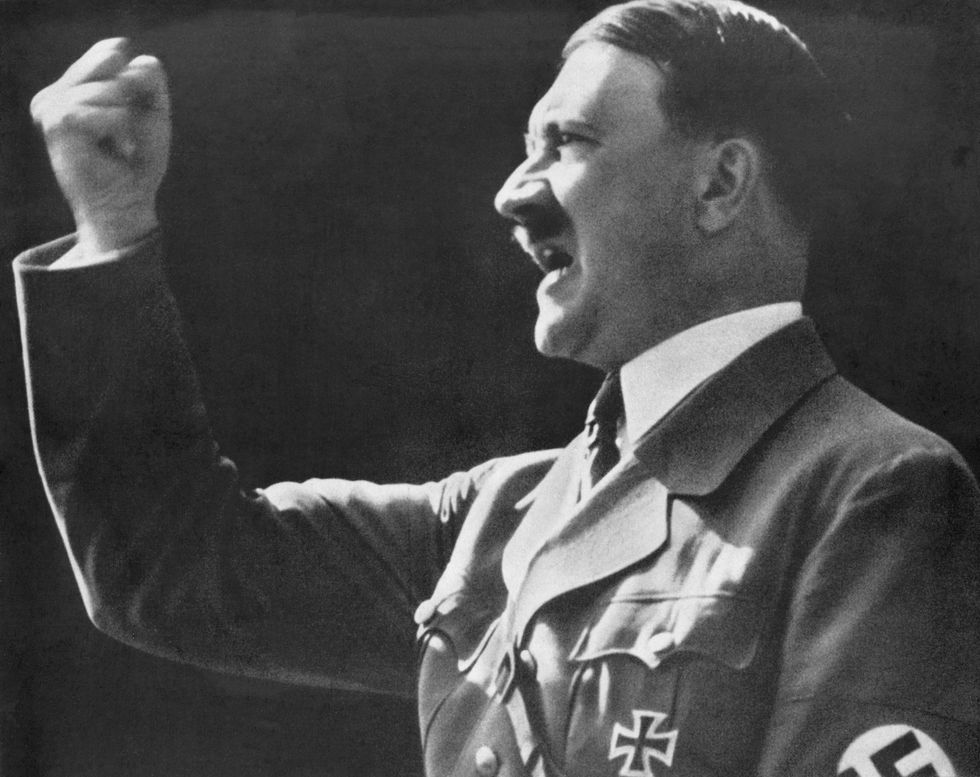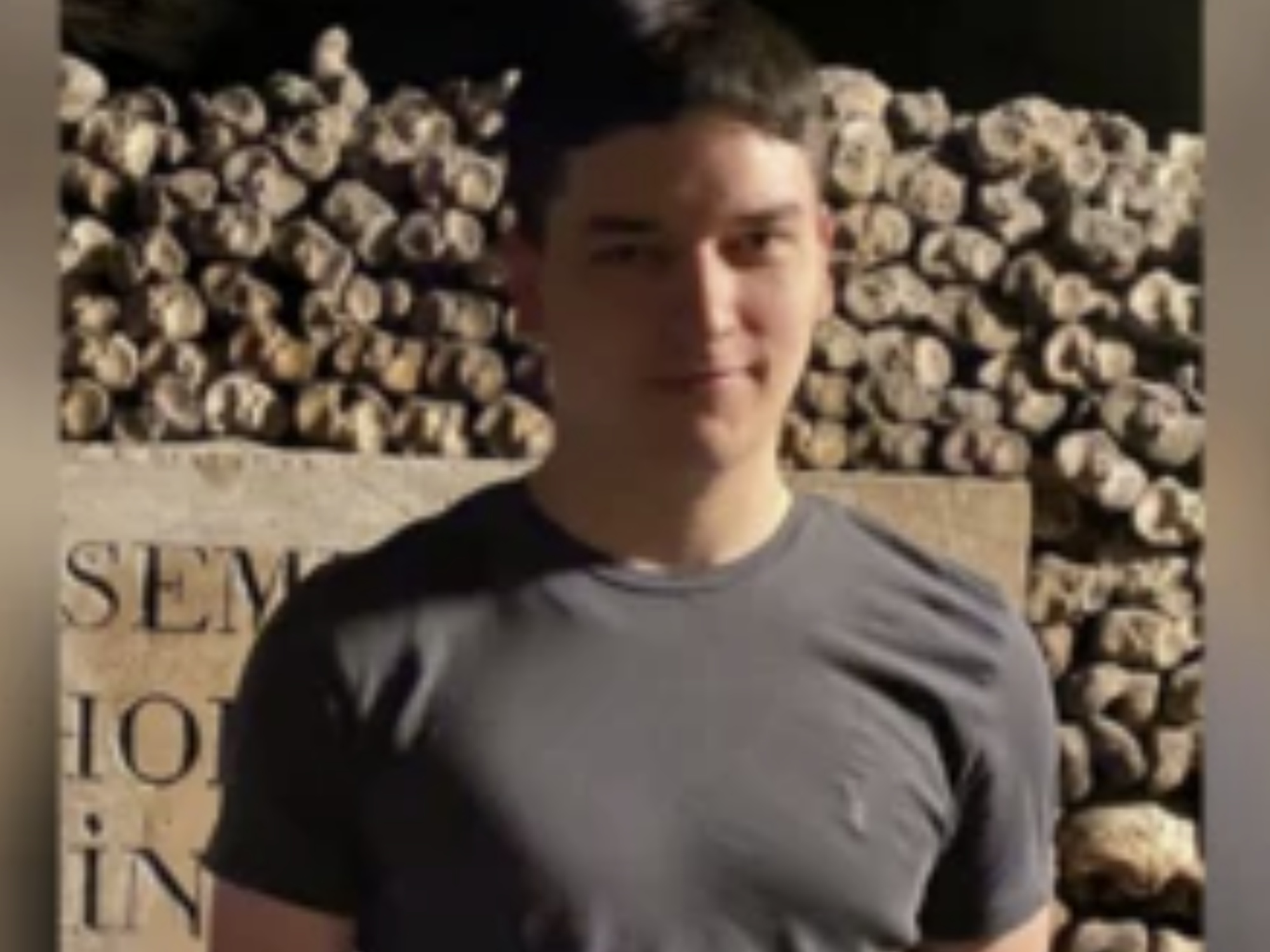I visited Auschwitz. Nothing will prepare his majesty for his visit in January - Nigel Nelson

OPINION - Nigel Nelson is a GB News commentator
Don't Miss
Most Read
The King will be in Poland next month to mark the 80th anniversary of the liberation of the Auschwitz-Birkanau concentration camp. His Majesty should steel himself to have his heart broken.
I visited last week to find out what Charles can expect. Nothing he will have read will prepare him for the monstrous reality of seeing first hand how 1.1 million men, women and children were systematically slaughtered.
Only an hour’s drive from the charming and cheery medieval town of Krakow, he will witness sights which never can, or should, be forgotten.
And it will take him time to process the full, overwhelming horror of it all, for the dreadful magnitude of what took place there to hit home.
We all know of the mountain of human hair, but it is something else to be inches from it. We know about the gas chambers.
But it is truly chilling to stand inside one and look up at the holes in the ceiling from which canisters of hydrogen cyanide were dropped to kill 6,000 Jews a day.
We know of the evil genetic experiments on twins performed by Angel of Death Dr Josef Mengele, but it brings a lump to the throat the size of a golf ball to see the matching clothes little girls no older than two left behind.
But what is most shocking is the matter-of-fact way in which the Nazis industrialised the business of death and the meticulous planning that required.
 The entrance to Auschwitz concentration camp | Reuters
The entrance to Auschwitz concentration camp | ReutersIt was a mammoth task to organise the murder of six million people. It also involved details such as turning human hair into textiles and human ashes into fertilser - using the leftovers to scatter over icy pathways at Birkenau to make them less slippery in winter.
But most uncomfortable of all is just how outwardly ordinary were the German penpushers behind this most heinous of crimes.
Even Hitler was a nondescript teetotal vegetarian who enjoyed an active sex life with mistress Eva Braun and loved opera, film, fast cars and cream cakes. Had he not become a dictator he would not have stood out in a crowd.
The same goes for the 15 German bureaucrats who met in 1942 for a two hour lunch accompanied by fine wine and brandy in the waterside Berlin suburb of Wannsee to plan “the final solution of the Jewish question.”
 Ex-German Chancellor Adolf Hitler | GETTY
Ex-German Chancellor Adolf Hitler | GETTYThey were well-educated, civilised, cultured men and courteous to a fault as they delicately picked their way through the buffet. Eight had doctorates. Many were lawyers. Yet they were attending the most murderous lunch in history.
Table talk included which poison gas was most effective and efficient methods of mass body disposal. As the crockery was cleared millions had been sentenced to death.
It is hard to fathom that such intelligent men could really believe Jews were a threat to the future of the human race. Or perhaps they saw what they were doing as no more than a progression of what had gone before.
In 1933, not long after Hitler came to power, 220 Hereditary Courts were set up and anyone with a family history of eight genetic diseases, including schizophrenia and depression, faced compulsory sterilisation.
Within two years the criteria had been extended to alcoholics, prostitutes and petty crooks. Then came the physical castration of repeat sex offenders and the indefinite detention of any serving prisoner deemed an ongoing risk to the public.
Capital offences were increased from three to 40, and 305 paediatric clinics were set up to treat disabled children, usually with a lethal injection.
LATEST MEMBERSHIP OPINION:
When Nuremberg race laws denied Jews any rights and made consorting with them an imprisonable crime it seemed a smaller step than it might have done had it been introduced at the outset.
It is a sobering warning of what can happen when extreme ideas begin to take root.
Those who ran Auschwitz-Birkenau became immune to the suffering of the one in five prisoners who did not go straight to the gas chambers, unmoved if they died of starvation, cold or were eaten alive by rats the size of cats as they slept.
Neither did they miss a chance to add an extra level of cruelty and humiliation. A Jewish cemetery was dug up in Krakow so the headstones could be turned into a path in a ghastly visual pun on the fate awaiting those forced to march along it. It is still there today.
Some prisoners were allowed to write letters home as long as they said how well they were being treated. They were gassed as soon as their mail was posted.
Only hours before Soviet troops arrived the SS were still herding prisoners into gas chambers, blowing them up at the last moment in a futile attempt to cover up evidence. The rubble remains exactly as they left it.
Our guide’s parting remarks were ones worth noting. That words matter, and we should take care how we use them.
Because it was the words of a onetime nonentity called Hitler which kicked all this off.











